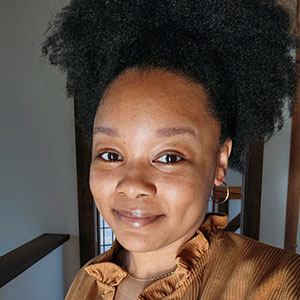Inside industry postdocs
Every year, more life sciences Ph.D.s are choosing industry postdoctoral fellowships, which combine mentorship with exposure to collaborative, fast-paced research.
In 2021, the National Science Foundation Survey of Earned Doctorates reported that 60% of life sciences Ph.D. graduates pursued postdocs — about twice the rate in engineering and math (35%) and six times the rate in education (10%).
According to science communicator Christopher Smith, demand for life science experts rose in the for-profit sector after the pandemic. In 2021, 50% of life science doctorates entered industry careers, compared with 30% in academia.
Recent Ph.D. grads curious about the scientific industry should consider applying to an industry postdoctoral fellowship like those at Genentech and Pfizer. These fellowships are like academic postdocs, emphasizing mentorship and training, but they also expose doctorates to the fast-paced and highly collaborative field of scientific industry research.
Read on to learn about industry postdoc experiences and what makes a competitive applicant.
From Ph.D. to pharma
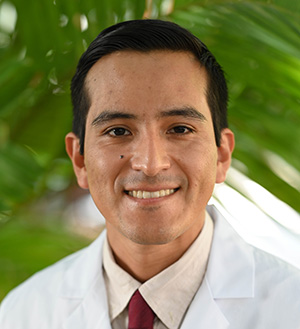
“You have to be exposed to different ways of doing things so you can decide what you want to do next,” Alex Sanchez–Covarrubias, a Pfizer postdoctoral fellow in computational and tumor cell biology, said.
Sanchez–Covarrubias, a medical doctor from Pisco, Peru, earned his doctorate in cancer biology from the University of Miami this year. His project at Pfizer focuses on identifying novel genetic variants in diverse populations to inform drug therapies for cancer.
During his doctorate, Sanchez-Covarrubias participated in a collaboration between the university and Pfizer to study the genetic diversity of patients diagnosed with breast or prostate cancer.
He met his mentor, Sara Linker, a senior researcher in the computational department, at an internal meeting and learned about the fellowship. As a fellow, he continues his research on the genetic diversity project.
Ozge Karayel, a physiological chemist in the Genentech Research and Early Development, or gRED, department, also networked to find her mentor.
Karayel earned her Ph.D. at the Max Planck Institute of Biochemistry in Germany and learned of the Genentech program through her academic network. During a conference, Karayel attended a keynote by Vishva Dixit, vice president of physiological chemistry at gRED, where he highlighted the groundbreaking work of one of his postdocs.
Inspired by this talk, Karayel spoke with Dixit about prospective mentorship and was taken on as a postdoctoral fellow.
“Genentech encourages prospective postdocs to connect with mentors whose work excites them, and I highly recommend being proactive,” Karayel said.
Shaping scientists for industry
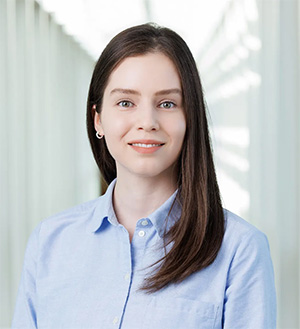
Sanchez-Covarrubias moved from Peru to the U.S. in search of research opportunities. He found industry research just as rigorous as academic research, but the industry work schedule allows for more time off than academic schedules that often require late-night or weekend work.
At Pfizer, deadlines and projects are team-managed, unlike academia, where “each person has their own project.” Sanchez-Covarrubias said which style postdocs prefer depends on individual goals.
“I wouldn’t say industry is better or worse (than academia),” Sanchez-Covarrubias said. Just different.”
Industry postdocs also build broader career skills, according to Karayel.
“We are encouraged to present our work at international conferences, build strong scientific networks, and develop the skills necessary to confidently launch independent careers,” Karayel said.
Collaboration is “the heart of my scientific philosophy,” Karayel said, noting that Genentech colleagues are talented, motivated and team-oriented, and mentors foster trainees’ growth.
Karayel said the research at Genentech has a higher scale and pace than in academia. The resources a company can provide often surpass academic resources many times over, allowing researchers to “execute our ideas at the highest possible level.”
Karayel said this preparation has equipped her with expertise and confidence to pursue the next stage of her career after completing the program.
What makes a strong candidate
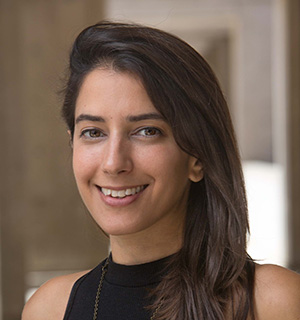
Linker outlined what makes a strong Pfizer postdoctoral applicant. Her first piece of advice: perfect the resume. Study the job description and include the most important words in the CV. Be specific and concise about unique contributions to each position and research project.
“Be very clear about the deliverables,” Linker said. “Did you publish a paper? What kind of research came out of this?”
Sanchez–Covarrubias advised Ph.D. students to diversify their skills while obtaining their degree. Attending workshops, presenting at conferences and networking events can lead to the dream postdoctoral fellowship even before completing a doctorate.
Experience in academia can also be leveraged to transition to an industry fellowship or full-time position. Linker completed an academic postdoctoral fellowship because she planned to become a primary investigator of her own lab.
Though her plans changed, her postdoc and later role as a staff scientist prepared her to thrive in pharma.
“I came in as a stronger and more confident scientist,” Linker said. “I can move through the projects quicker and navigate a lot easier.”
Genentech has similar requirements for prospective postdoctoral fellows. Candidates are expected to have strong technical research skills as well as a passion for collaboration.
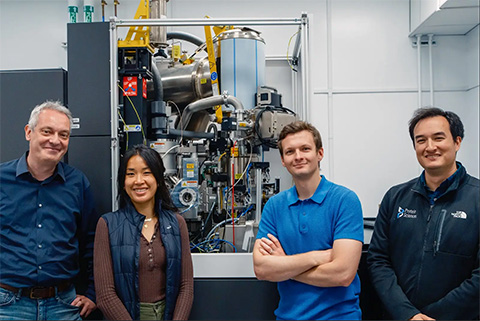
“We value individuals with a broad spectrum of skills, backgrounds and research experiences,” Claudio Ciferri, vice president of protein sciences at gRED, said.
The best applicants to Genentech are interested in areas of unmet medical need and addressing the most important biological problems. Genentech focuses on the direct application of research to patients.
“As a mentor, I look for independence and a proven track record of success working on a very important biological or technological problem that had not been solved before,” Ciferri said.
Sometimes worrying about not being a perfect fit prevents potential postdocs from pursuing a program. Linker advised potential applicants to be brave when applying to a position they don’t think they fully fit, but will really enjoy.
“If you don’t apply, you will never get it,” Sanchez–Covarrubias said.
Enjoy reading ASBMB Today?
Become a member to receive the print edition four times a year and the digital edition monthly.
Learn moreFeatured jobs
from the ASBMB career center
Get the latest from ASBMB Today
Enter your email address, and we’ll send you a weekly email with recent articles, interviews and more.
Latest in Careers
Careers highlights or most popular articles

Defining JNKs: Targets for drug discovery
Roger Davis will receive the Bert and Natalie Vallee Award in Biomedical Science at the ASBMB Annual Meeting, March 7–10, just outside of Washington, D.C.

Upcoming opportunities
No matter where you are in your career and what future path you aspire to, everyone needs leadership skills. Join ASBMB for practical strategies for building and practicing leadership skills.

Close out ASBMB 2026 with a bang
The closing reception of the 2026 ASBMB Annual Meeting will be held at the Torpedo Factory Art Center in Alexandra, Virginia.

Redefining lipid biology from droplets to ferroptosis
James Olzmann will receive the ASBMB Avanti Award in Lipids at the ASBMB Annual Meeting, March 7–10, just outside of Washington, D.C.

Creating change in biochemistry education
Pamela Mertz will receive the ASBMB William C. Rose Award for Exemplary Contributions to Education at the ASBMB Annual Meeting, March 7-10 in Washington, D.C.

Trainee mentorship as immortality
Suzanne Barbour will receive the ASBMB Sustained Leadership Award at the ASBMB Annual Meeting, March 7-10 in Washington, D.C.

